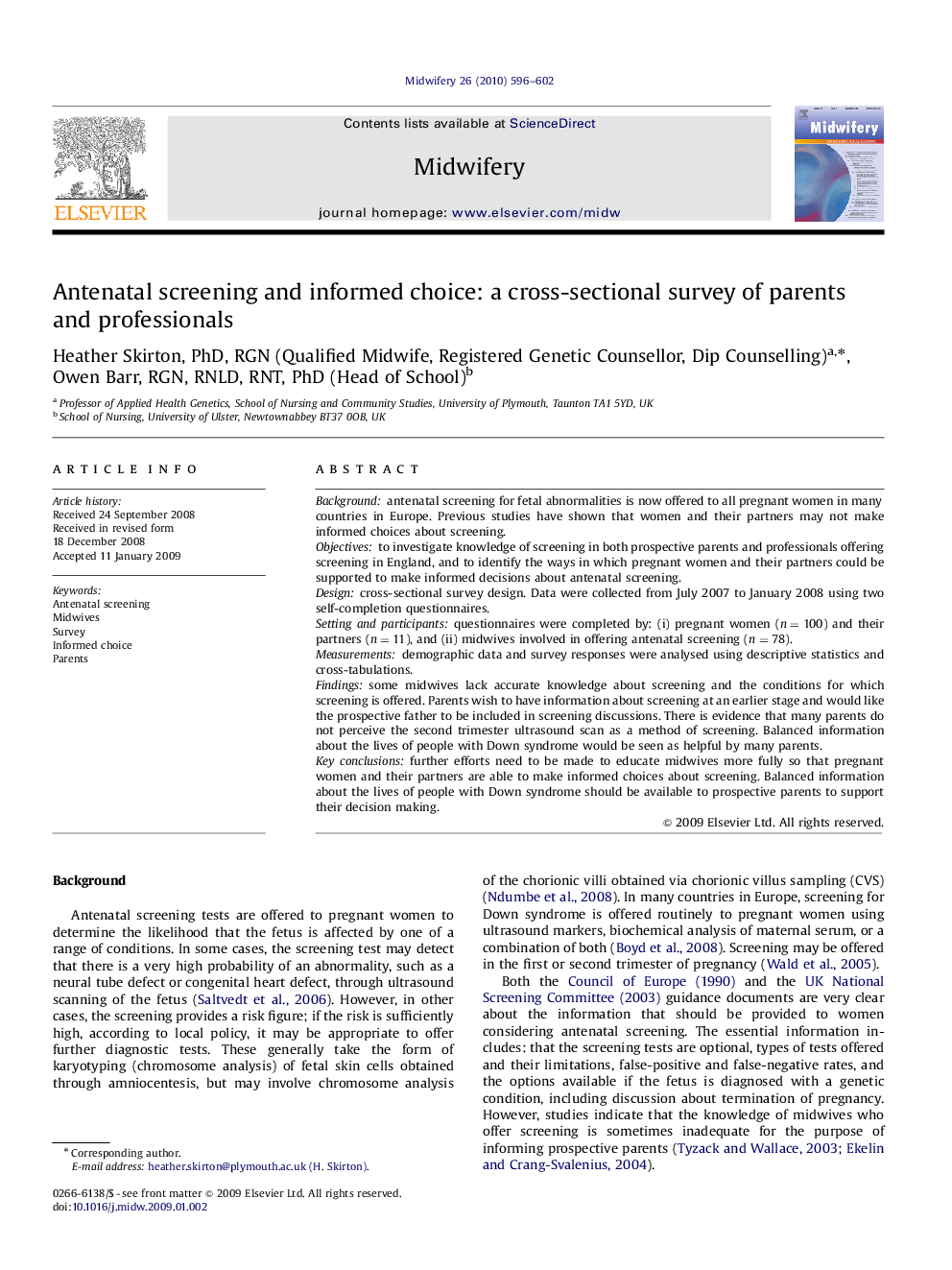| Article ID | Journal | Published Year | Pages | File Type |
|---|---|---|---|---|
| 1085162 | Midwifery | 2010 | 7 Pages |
Backgroundantenatal screening for fetal abnormalities is now offered to all pregnant women in many countries in Europe. Previous studies have shown that women and their partners may not make informed choices about screening.Objectivesto investigate knowledge of screening in both prospective parents and professionals offering screening in England, and to identify the ways in which pregnant women and their partners could be supported to make informed decisions about antenatal screening.Designcross-sectional survey design. Data were collected from July 2007 to January 2008 using two self-completion questionnaires.Setting and participantsquestionnaires were completed by: (i) pregnant women (n=100) and their partners (n=11), and (ii) midwives involved in offering antenatal screening (n=78).Measurementsdemographic data and survey responses were analysed using descriptive statistics and cross-tabulations.Findingssome midwives lack accurate knowledge about screening and the conditions for which screening is offered. Parents wish to have information about screening at an earlier stage and would like the prospective father to be included in screening discussions. There is evidence that many parents do not perceive the second trimester ultrasound scan as a method of screening. Balanced information about the lives of people with Down syndrome would be seen as helpful by many parents.Key conclusionsfurther efforts need to be made to educate midwives more fully so that pregnant women and their partners are able to make informed choices about screening. Balanced information about the lives of people with Down syndrome should be available to prospective parents to support their decision making.
